Customer Services
Copyright © 2025 Desertcart Holdings Limited


🎮 Master the art of fun before your competitors do!
Theory of Fun for Game Design is a bestselling, highly rated book that distills the psychology and math behind what makes games enjoyable. Perfect for students and professionals alike, it offers timeless, jargon-free insights applicable across all game types, making it a must-have foundational read in game design.








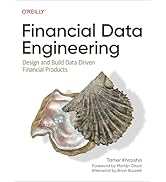



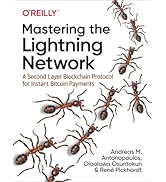


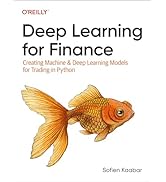





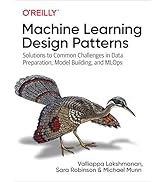
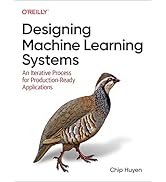


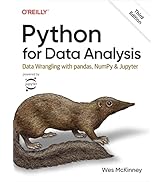
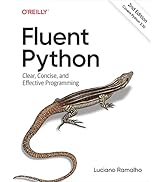
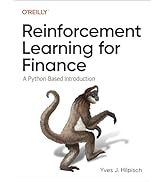

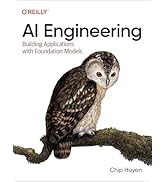
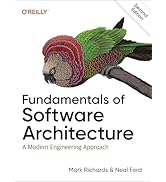

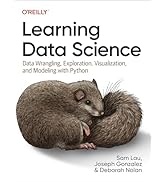



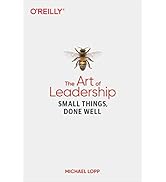






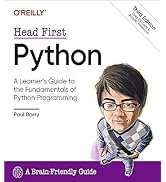
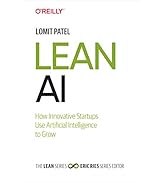





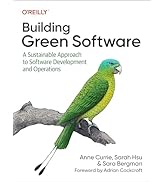

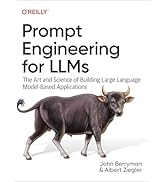



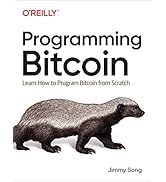


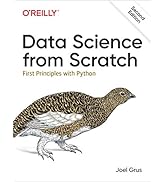


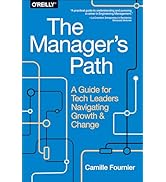

| Best Sellers Rank | #54,716 in Books ( See Top 100 in Books ) #7 in Game Theory (Books) #8 in Game Programming #9 in Computer & Video Game Design |
| Customer Reviews | 4.3 4.3 out of 5 stars (696) |
| Dimensions | 7.5 x 0.55 x 9.25 inches |
| Edition | 2nd |
| ISBN-10 | 1449363210 |
| ISBN-13 | 978-1449363215 |
| Item Weight | 1.36 pounds |
| Language | English |
| Print length | 297 pages |
| Publication date | December 31, 2013 |
| Publisher | O'Reilly Media |
O**N
Excellent Book for Intro Courses
This is a excellent introductory read for analyzing what exactly is “a game” and what it is that makes a game “fun.” A concept that is somewhat abstract and different to different individuals yet vital to successful game design. This is especially important for students to consider as they often get caught up on what it is that they personally enjoy or find fun and generalizing that to all gamers. Having a more holistic understanding of design will be helpful as they move from players to students to professionals. The book presents such concepts in an easy to read and digestible manner that allows for a perfect balance of reflection on concepts that are applicable today just as much as they were 20 years ago, while not being so heavily laden with academic jargon and lengthy chapters that it takes away from the time that students can actually be working on projects and applying the concepts to design. This also makes this book perfect to pair with outside articles and other supplemental readings. A definitive winner for any design course or anyone interested in game design.
D**E
Amazing!
This is simply and concisely brings together the psychology, math, and "fun" of games. I read this thinking it was specifically about video games, but I was pleasantly surprised it talks about all games broadly. The footnotes have left me with a list of additional books to explore. It's an amazing book and highly recommend it to anyone interested in any type of game creation.
G**.
Good read, but a misleading title.
Interesting book for sure; however, I feel like it's title is a bit misleading. This book is more a study of what is a game and a re-playable game vs. what makes something fun. There is also a lot of content opining about what types of games should be made today and what games should teach us. It's all very interesting to read, but the focus on what makes a game fun vs. not fun isn't here.
A**Y
A Foundation for Games
What this book has done to me is to wipe away the "magic" of game design and show that it is as elementary as any other media known to man. First I should mention that it is my intention to make games when I graduate college, so this book was an investment for me. I think of myself as a mathematical minded person, a clearly left brained specimen. This meant that when I tried to look at games and decipher the "fun" element, I often just chalked it up to be a balance of art and design that a poor left-brainer like myself couldn't understand. Koster changed that for me by explaining in clear logical terms many of the elemental building blocks of fun. Under his exploratory analysis he made the concept of games digestible and easy to understand. Now I'm under no illusion that this will make me a better game designer over night, but I do think that it has established a firm base for which I could think of games in a mathematical way, making them easier to design for me. Also much of the latter portion of the book deals with the legitimacy of games as a form of art, which I was surprised to find. Despite my surprise this part of the book did manage to put many of the underlying fears I had of joining the games industry to rest. More than ever I have become inspired to pursue my career and be true to my desires, thanks to this book.
S**S
A quick and enjoyable read that is somewhat helpful, but misses some marks and heads in some tangential directions.
I read this on the recommendation of an acquaintance who raved about it and told me that I would understand myself and other gamers better and that that improved understanding would help clarify and prioritize my goals as a hobbyist game designer and also possibly ignite some creative thinking. (That's my understanding of what she meant to say.) I think some of that has happened as a result of reading this, but it seems like most of it was almost more because of what can be read between the lines than it was because of anything the author actually intended to say. Some of what he talks about is observed phenomenon, which he has been in a position to become aware of as a result of working as a game designer on small and large projects that enjoyed varying degrees of success over a period of quite a few years. That part of what he says is very informative and helpful. But to get those little nuggets out of the book, you have to kind of wade/sift through all his personal opinions about what he thinks is driving those phenomena, and his interpretations of what they mean, and his exhortations of designers toward ideals that he personally would like to see promoted and pursued and all that. One of the assertions he made was that people prefer activities that challenge them at the limit of their ability. This is an interpretation of some observed data. There may be other plausible interpretations of the same data. But that interpretation rings at least partially or even largely true to me, and it is clarifying and interesting and worth noting, to me. That's one of those sort of basic and obvious things that you might not really have clearly at the forefront of your conscious awareness, until someone points it out. He further notes that there is this process of learning that goes on in games; people get better at them. When they stop getting better, they stop playing. (Or at least that seems to be the case.) So his assertion is that a good game teaches a given player everything it has to teach before that player stops playing it; in other words, if a significant percentage of players don't end up getting exposed to / roped into trying all the things in a game that they could pick up and get better at, a lot of the effort in creating the game is wasted, and it's potential traction in the marketplace of games is reduced compared with what it could be. (That's what I understood him to more-or-less intend to say; although I had to sort of read between the lines a little to arrive at that summation.) Which certainly makes some sense to me, and that idea has some value to me, but - I'm pretty sure that there are abilities I've already gained, things I've already learned how to do about as well as I'm ever going to, that I still enjoy and will enjoy forever. Take sex for example. I'm not that interested in trying to learn how to do it any better than I do, at this point in my life. But I'll always be interested in doing it, anyway. And if she changes the way she looks, and it's a new variety of hotness, then that can revitalize what is essentially a timelessly old flame. Take 2D shooters. I love them, I always have and always will, I'm sure, even if I never get any better at them. Change the look and feel a little, change some of the sounds, add some twists, and you'll have me hooked. Some of this guy's suggestions about possible future game designs could involve, on the other hand, to me sound hopelessly and completely without any appeal at all. So the idea that our basic urges are a result of evolution, and therefore we should be able to predict and perhaps even steer where evolution will take us next, seems like a bit of a far reaching stretch to me, and is really entirely aside from anything I care about. And a fair amount of what he talks about is based on that general premise. I rather suspect that our basic urges are a little more hard wired and less malleable than all that. I think sex has been around forever and will be around forever (for example) and things that tap into that urge will always sell well. People say that what physical shapes inspire lust has changed over the centuries and across cultures. But that is an interpretation of observed data. There may be other plausible interpretations of the same data. I personally kind of suspect that at least one of the other plausible interpretations is more accurate than that one. I kind of suspect that at a basic level, there is some fundamental shape or set of shapes, buried deep in the human psyche, and whatever cultural shifting has gone on is more kind of a process of honing and refining our awareness of it than it is changing it. Here I'm not speaking of any individual, more about.. for example the phenomena of lusty image ratings. If you took 100 pictures, and exposed them to millions of men between the ages of about 13 and about, oh, 90, all over the world and from all times down through history, you might get different orderings of that list in different parts of the world or at different times in history at first, but if you exposed those same groups of people to the same or a similar list of images many times over a period of time, I think all of those disparate groups would sort of gradually gravitate toward the same order. Because the process of exposing them to the list would gradually make most of them more aware of what shapes actually hold more basic sex appeal to most male humans on a fundamental level.
K**R
Amazing
I'm starting to learn game design, and I really excited to find this treasure. It's more about attitude to the game design, what's it about, than some practical advice. Good place to start.
W**N
Still the best treatise on the theory of games
Raph goes very deep, with extremely appropriate citations and engaging cartoons. Easy to see why he is so highly respected member of the game design community. Very admirable work.
D**T
A great, short read!
This is a short read, and not really technical like other books, but it is a great way to get introduced to the theory of game design. It also helps get you started thinking about the potential of games to be a positive force in the world. A theme you can follow up on with books like "Reality is Broken." I highly recommend this book!
T**I
Uno de los libros de referencia al comenzar a aprender sobre diseño de videojuegos, ya que explica los mecanismos que existen acerca de lo que hace disfrutable o divertido un juego. Probablemente existan otros libros más holísticos acerca del desarrollo, (Como the "Art of Game Design") pero este es una lectura ligera e introductoria, así como totalmente recomendable.
C**S
I really enjoyed reading this book and felt that it gave some great points and perspectives on things that you should keep in mind while designing games. It does not cover everything, not even close, but its a great starter book and a good way to get into it.
A**R
Can't stress how important it is to read this if you plan to get into game dev or you are a game dev.
L**A
Very insightful book on the fun behind the games for all game designers seriously thinking on improvent if their skills.
S**A
Bom produto. Entregue no prazo acertado
Trustpilot
4 days ago
1 month ago